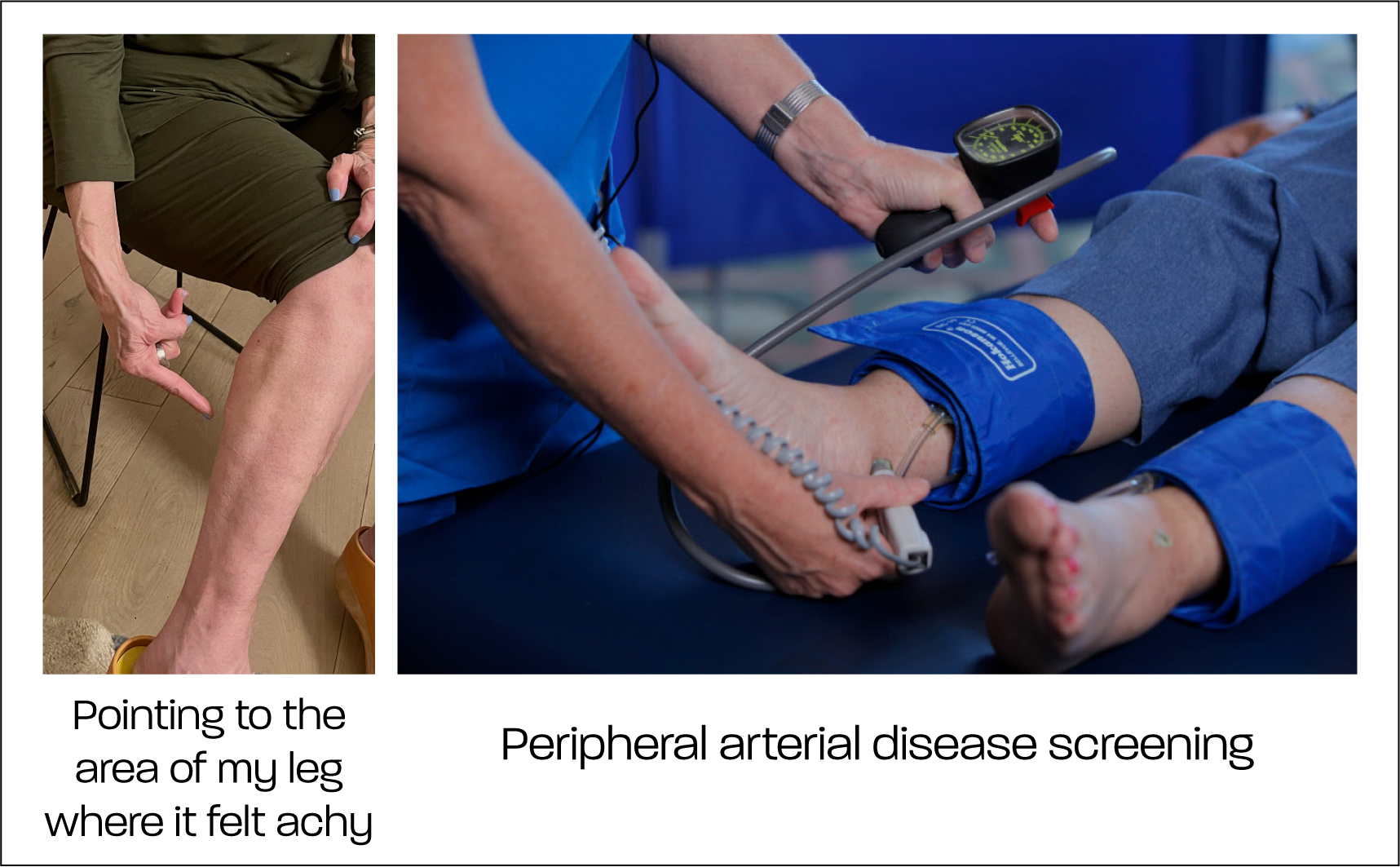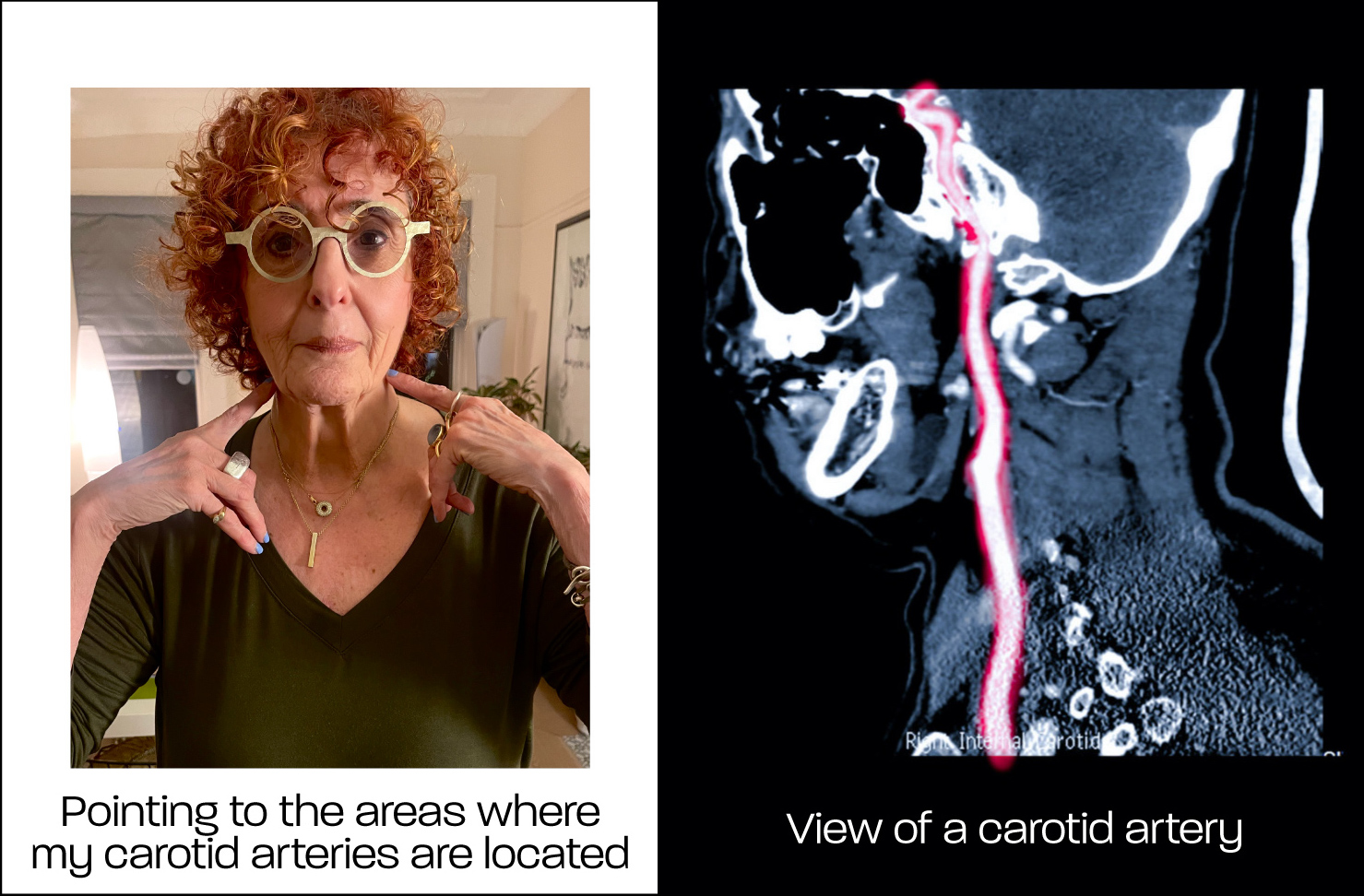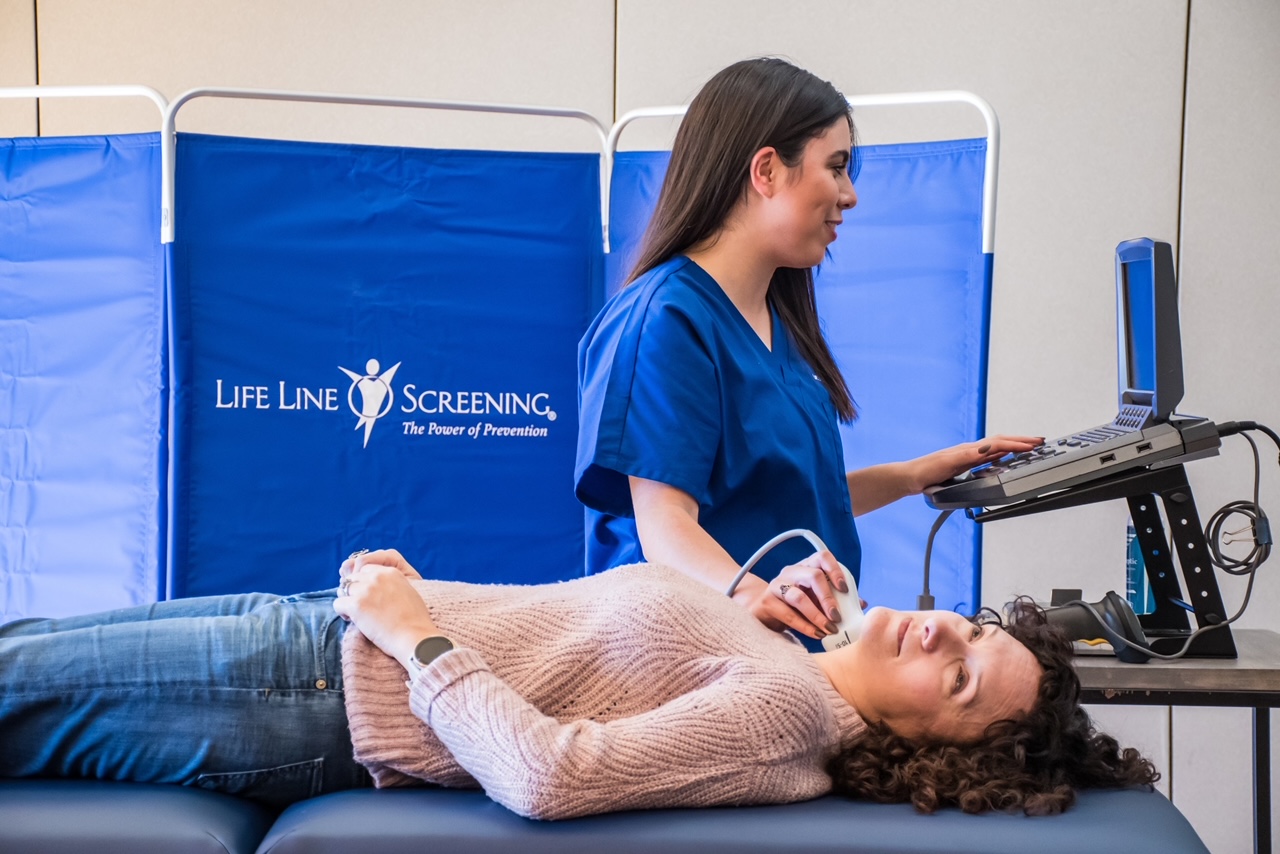Life Line Screening compensated FOF with an advertising sponsorship to write this post. Regardless, I started having its health screenings years before this, and I only recommend products or services that I believe will benefit others. Geri Brin, Founder, faboverfifty.com
When my calves began to ache, I immediately thought about my former partner Edgar complaining of the same issue when he was sixty-something. Edgar learned his calf pain was a symptom of peripheral arterial disease (PAD), a circulatory condition which narrows blood vessels with plaque and reduces blood flow to the limbs.
PAD usually affects the arteries in the legs, like it did with Edgar. It also can affect the arteries that carry blood from your heart to your head, arms, kidneys, and stomach. And, it can lead to a stroke.

Most prevalent starting in our mid-fifties, PAD is associated with risk factors including diabetes, obesity, smoking (past or present), high blood pressure, high cholesterol, and genetics.
Since approximately 40 percent of undiagnosed PAD cases don’t have symptoms, a preventive screening is recommended for anyone with risk factors. As a former (heavy) smoker with elevated cholesterol, I made an appointment to be tested by Life Line Screening. I trust Life Line Screening because a previous screening test revealed a 50 to 70 percent plaque obstruction of my carotid artery.
The Value of Preventive Screening & Seeing the Right Doctor
The doctor who monitors my carotid artery will review the results of my Life Line Screening PAD test since he specializes in disease of the arteries and veins. And, if I ever need someone to unblock the vessel supplying blood to my neck, face and brain – or anywhere – I’d want my own vascular specialist to perform the surgery.
Life Line Screening’s stroke and cardiovascular disease risk screenings are designed to give us control over our own health care. By discovering issues early, we can take steps to prevent them from worsening. That’s what makes Life Line Screening a smart idea. A really smart idea.
Life Line Screening suggests you consult with a physician who has deep experience with your particular concern. My screening, for example, showed above average plaque in my carotid artery. Your primary care doctor can recommend a specialist to discuss next steps if he or she believes it’s necessary, particularly if test results are outside the ‘normal’ range.
“If you’re feeling well and have risk factors, screening is good,” my doctor told me. I fall into that category. Fortunately, the plaque in my carotid artery has remained stable.

The Life Line Screening Difference
Life Line Screening has provided preventive screening to millions, and at remarkably fair prices, since it began in 1993. When Life Line Screening recently contacted me about introducing its screening service to my FOFriends, I didn’t hesitate. After all, they discovered the plaque in my carotid artery at an early stage, and suggested that I see my own doctor. Pretty foolish not to heed their advice. Everyday Life Line Screening finds people across the country with significant carotid artery disease.
Besides the screenings for peripheral arterial disease and carotid artery plaque, a Life Line Screening special package offers two additional tests for:
Abdominal aortic aneurysm, a bulging, weakened area in the wall of the aorta, which is the largest artery in the body. Over time, the blood vessel balloons and is at risk for bursting or tearing, which can cause life- threatening bleeding and potentially death.
Heart rhythm aka atrial fibrillation or AFib, a quivering or irregular heartbeat that can lead to blood clots, stroke, heart failure and other heart-related complications.
All four screenings are only $159.
In And Out In 90 Minutes Or Less
 Life Line Screening serves about 60 cities across the country each day. Teams at the screening sites include at least two ultrasound stenographers who hold certificates in ultrasound technology, and two medical assistants who are cross trained to perform tests including electrocardiograms for heart rhythm, fingerstick blood tests, and peripheral pulses.
Life Line Screening serves about 60 cities across the country each day. Teams at the screening sites include at least two ultrasound stenographers who hold certificates in ultrasound technology, and two medical assistants who are cross trained to perform tests including electrocardiograms for heart rhythm, fingerstick blood tests, and peripheral pulses.
While most people opt for the basic, four-screening package I described earlier, many decide to get their cholesterol and glucose checked during the same appointment. Life Line Screening offers 15 preventive screening blood tests, including thyroid function, vitamin D, and hemoglobin A1c for diabetes. It also provides a take-home test to screen for colorectal cancer. A call center with 300 trained employees helps participants decide what tests are right for them, based on their age, risk factors and medical history.
Testing is done in churches, at community centers, fraternal organizations and occasionally in hotel ballrooms. It also offers exclusive screenings for employees of large corporations as part of their healthcare plans. Life Line Screening’s goal is to get people in and out in 60 to 90 minutes, which includes paperwork and waiting time.
The Results Are In
A board-certified physician reviews most results before they are securely shared with you via an online portal within 7 days of your screening. Life Line Screening stresses the importance of sharing atypical results with a physician so you can take appropriate action if necessary.
People generally have their first stroke and cardiovascular disease risk screening at 50 years old, but patients in their 40s with a family history of early strokes, for example, get screened too.
Get preventive screenings once you’re age fifty, whether or not you have symptoms. And pay attention to what you learn.


